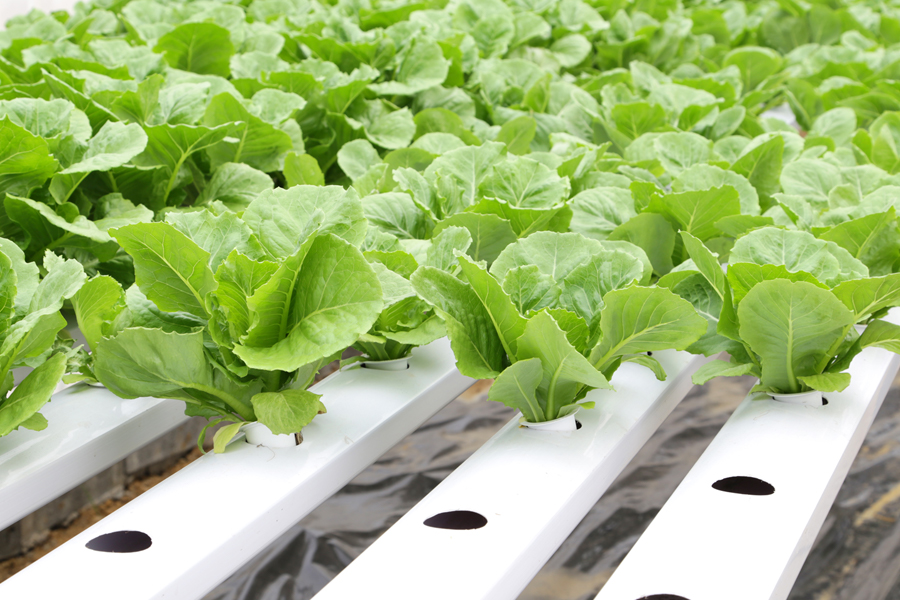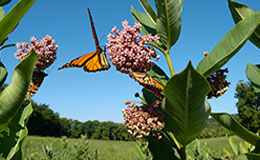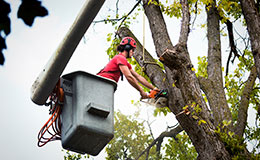
The Minnesota Department of Agriculture (MDA) has awarded funding to twenty-nine farmers’ markets across the state through its Farmers’ Market Nutrition Assistance Grant Program. The one-time state funding will help participating markets strengthen and expand nutrition assistance efforts during the 2025 season.
Farmers’ markets are a vital access point for Minnesotans who use nutrition assistance program benefits. These programs not only provide a source of fresh, locally grown food in areas where grocery options may be limited, they also create an important customer base for small and emerging farmers. “Farmers’ markets help bridge the gap between producers and families seeking healthy, affordable food,” said Minnesota Agriculture Commissioner Thom Petersen. “By supporting nutrition assistance programs at farmers’ markets, we’re strengthening local economies and increasing access to fresh food for communities across the state.”
In total, MDA awarded $146,669.55 through a competitive review process. Eligible expenses for grantees include hiring support staff, printing outreach materials, purchasing EBT tokens, offering transportation assistance, and other tools that help manage nutrition assistance programs. Markets receiving funding must be located in Minnesota and participate in at least one nutrition assistance program this year.
A full list of recipients and their award amounts can be found below.
This program is supported by a one-time state legislative appropriation. More information about the Farmers’ Market Nutrition Assistance Grant Program is available on the MDA website.
2025 Awardees
| Grantee Organization/Market Name | Location | Grant Award Amount |
|---|---|---|
| Audubon Neighborhood Association | Minneapolis | $3,172.00 |
| BrightSide Produce | St. Paul | $3,542.00 |
| CAPI USA | Brooklyn Center | $6,800.00 |
| Cambridge Farmer's Market | Cambridge | $2,170.00 |
| Carlton County Farmers' Market | Esko | $2,000.00 |
| Central MN Vegetable Growers Association | Minneapolis | $9,885.40 |
| City of Brooklyn Park | Brooklyn Park | $1,995.00 |
| City of Champlin | Champlin | $3,175.00 |
| City of Goodview | Goodview | $6,950.00 |
| Community Action Duluth | Duluth | $9,960.00 |
| Crookston Farmers' Market Association | Crookston | $5,485.00 |
| Cuyuna Range Farmers' Market | Crosby | $2,745.00 |
| Dassel Farmers' Market | Dassel | $2,000.00 |
| Farmer's Marketplace | Austin | $4,380.00 |
| Howard Lake Farmers' Market | Howard Lake | $2,000.00 |
| Indigenous Roots | Saint Paul | $3,525.00 |
| Riverside Farmers & Makers Market | Jackson | $5,000.00 |
| Lake City Market by the Lake | Lake City | $3,360.00 |
| Little Falls Farmers' Market | Little Falls | $5,200.00 |
| Market in the Valley | Golden Valley | $4,512.00 |
| Neighborhood Roots | Minneapolis | $2,920.00 |
| New Brighton Farmers' Market | New Brighton | $10,000.00 |
| New Ulm Farmers' Market | New Ulm | $10,000.00 |
| St. Luke's Farmers' Market | Saint Paul | $3,680.97 |
| The Duluth Market Gardeners and Berry Association, Inc | Duluth | $5,436.98 |
| The Kinfolk Market | Ada | $10,000.00 |
| Two Harbors Farmers' Market | Two Harbors | $2,739.00 |
| Uptown Farmers' Market | Minneapolis | $4,036.00 |
| West Side Farmers' Market | Saint Paul | $10,000.00 |
| Total Awarded | $146,669.55 |
###
Media Contact
Nikki Warner, MDA Communications
651-238-7909
Nikki.Warner@state.mn.us

No, farms in Minnesota are not required to be licensed to sell fruits and vegetables that they grow. If the farm is selling produce that was grown by a different farm, then they are required to have a license to resell or redistribute it. A product of the farm or garden may be further processed by the farm (e.g., canned pickles), but if off-farm ingredients are added, such as vinegar or sugar, a license is required. For more information, see Food Licensing Exclusions and Exemptions.
Businesses such as produce aggregators or food hubs which purchase produce from multiple farms, aggregate (combine) it, and then handle, package, or distribute produce, are required to hold a license with the MDA.
No, farms in Minnesota are not required to be licensed to sell fruits and vegetables that they grow. If the farm is selling produce that was grown by a different farm, then they are required to have a license to resell or redistribute it. A product of the farm or garden may be further processed by the farm (e.g., canned pickles), but if off-farm ingredients are added, such as vinegar or sugar, a license is required. For more information, see Food Licensing Exclusions and Exemptions.
Businesses such as produce aggregators or food hubs which purchase produce from multiple farms, aggregate (combine) it, and then handle, package, or distribute produce, are required to hold a license with the MDA.
No, most produce farms within Minnesota are not required to have a food safety inspection. Only the larger farms that meet certain sales thresholds and markets are required to have a food safety inspection from the MDA Produce Safety Program. You can request to see a copy of an inspection report from any farm that is inspected to better understand any food safety concerns.
Additionally, some farms elect to have a third-party food safety audit, such as a Good Agricultural Practices (GAP) audit, but this is not a regulatory inspection. If your farmer has undergone one of these voluntary food safety audits, it is typically for one or two crops they grow, not the entire farm. You can ask to see their certificate to verify the fruits and vegetables you’re buying have passed an audit. Farms need to re-certify each year – it does not carry from year to year.
No, most produce farms within Minnesota are not required to have a food safety inspection. Only the larger farms that meet certain sales thresholds and markets are required to have a food safety inspection from the MDA Produce Safety Program. You can request to see a copy of an inspection report from any farm that is inspected to better understand any food safety concerns.
Additionally, some farms elect to have a third-party food safety audit, such as a Good Agricultural Practices (GAP) audit, but this is not a regulatory inspection. If your farmer has undergone one of these voluntary food safety audits, it is typically for one or two crops they grow, not the entire farm. You can ask to see their certificate to verify the fruits and vegetables you’re buying have passed an audit. Farms need to re-certify each year – it does not carry from year to year.
Small farms are not more or less safe than a large farm. All farms have the same types of food safety risks and must implement strategies to mitigate those risks.
Small farms are not more or less safe than a large farm. All farms have the same types of food safety risks and must implement strategies to mitigate those risks.
The Minnesota Grown label is not indicative of food safety. It is a marketing program to help farms communicate that their food is grown in Minnesota. No regulatory program or food safety education is associated with the label.
The Minnesota Grown label is not indicative of food safety. It is a marketing program to help farms communicate that their food is grown in Minnesota. No regulatory program or food safety education is associated with the label.





